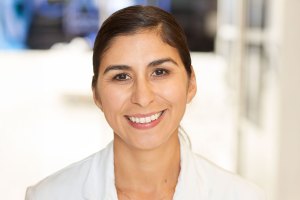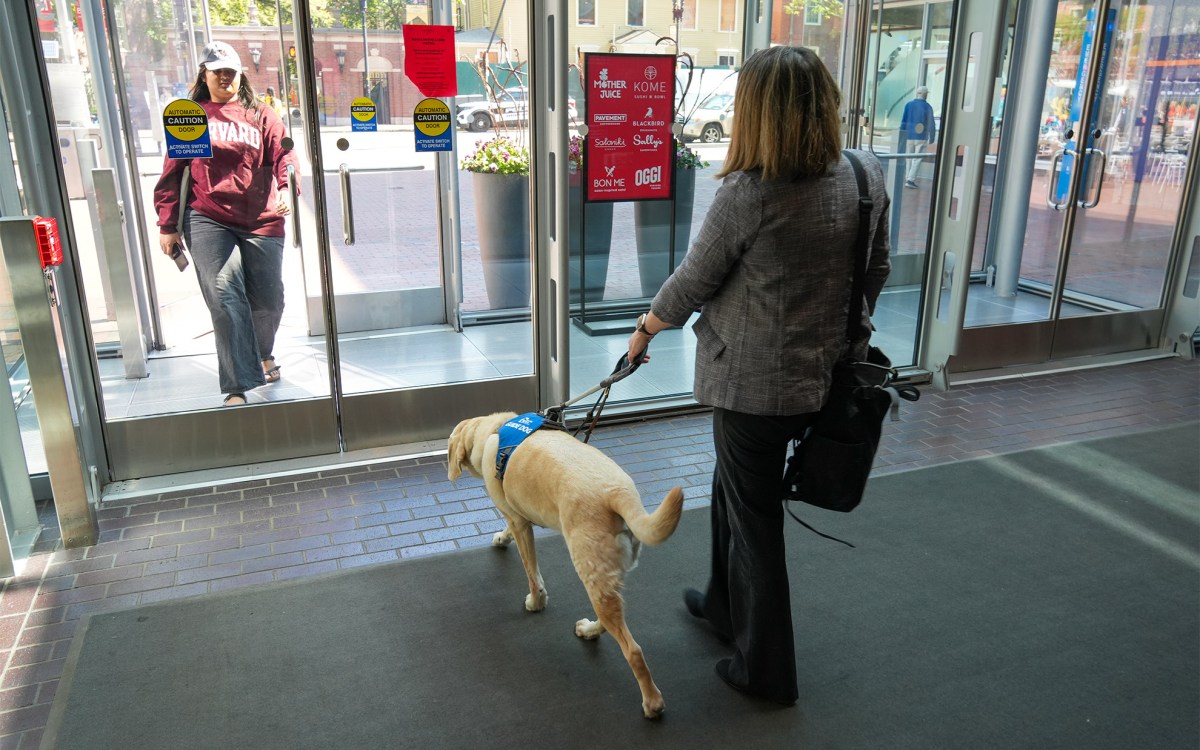Program on U.S.-Japan Relations names fellows
Harvard’s Program on U.S.-Japan Relations has recently selected 16 fellows for the 2003-04 academic year. Founded in 1980, the program enables outstanding scholars and practitioners to come together to conduct independent research and participate in an ongoing dialogue with other members of the Harvard and Greater Boston communities.
While at Harvard, fellows enjoy the status of University officer; take part in seminars, colloquia, and other functions of the program; attend classes and other activities at Harvard and the Massachusetts Institute of Technology; prepare a major research paper; and publicly present the results of their research.
The following fellows will be in residence at Harvard during the 2003-04 academic year.
Erin Chung earned a B.A. in politics from the University of California, Santa Cruz, in 1991, an M.A. in international studies from the University of Washington in 1994, and a Ph.D. in political science from Northwestern University in 2003. She has published several articles focusing on the participation of Korean citizens in Japanese society. While at Harvard, Chung will continue this research by examining the relationship between postwar citizenship policies and noncitizen political behavior.
Kentaro Fukumoto earned his B.A. in law at the University of Tokyo in 1995. Following his graduation, Fukumoto was a research associate at the university’s faculty of law until 1998, during which time he completed his research dissertation. His publications include “Politics in the Japanese Diet: A Statistical Analysis of Postwar Government Legislation.” Fukumoto currently teaches at Gakushuin University. His research at Harvard will compare civil society in Japan and the United States.
Takenobu Inaba earned a B.A. from the faculty of business and commerce at Keio University in 1988. After completing his studies, he joined the Mitsubishi Trust and Banking Corp., where in his most recent position as chief manager of the Credit Supervisory Division, he planned and executed credit rating models. Inaba’s research at Harvard will examine the development of an optimal business model for loans to large companies in Japan by adapting the lending concepts of U.S. banks.
In-Sung Jang earned a B.A. and an M.A. at Seoul National University and a Ph.D. (all in international relations) at the University of Tokyo before assuming his current position in the Department of International Relations at Seoul National University. His publications include “Topos and International Political Thought: Confucian Thinkers in the Changing East Asian Order of the 19th Century.” While at Harvard, Jang will research the international system, globalization, and national identity in Japan.
Kiyoshi Kawai earned his B.A. in law at Tokyo University in 1984. He has served as deputy chief of police at Wakayama Police Headquarters, senior deputy director at the Traffic Planning Division of the National Police Agency, and most recently as director of the Ministry of Economy, Trade, and Industry’s Latin America and Caribbean Office. At Harvard, Kawai will investigate the advance passenger information system (APIS) in the United States and possible improvements to Japan’s own APIS.
Jonathan Marshall earned a B.A. in East Asian studies at Yale in 1988, and a Ph.D. in political science at the University of California, Berkeley, in 2003. His publications include “Here Comes the Judge: Freedom of Information and Litigating for Government Accountability.” While at Harvard, Marshall will research the manufacture and control of information by the Japanese state in historical perspective.
Hiroto Matsuda joined the Development Bank of Japan (DBJ) after earning a B.A. in law from Tohoku University in 1985. He served as a deputy director in the Transportation Department at DBJ and worked as deputy director for the Ports and Harbors Bureau in the Ministry of Transportation before becoming director of the Project Finance Department at DBJ in 2001. Matsuda’s project will compare infrastructure and privatization policy and finance in the United States and Japan.
Masao Miyata joined Tokyo Gas Company in 1991 after earning a bachelor of law at Chuo University (1991). At the company, he has worked in the personnel department. Most recently, Miyata has been working on a project to develop a new management vision for Tokyo Gas in the Corporate Planning Department. His research at Harvard will focus on human resource management in an age of economic maturity.
Toshikazu Okuya graduated from Tokyo University with a B.A. in law in 1995 before he entered the Ministry of Economy, Trade, and Industry. Okuya worked in the Industrial Policy Bureau before assuming the post of assistant councilor in the Administration Reform Promotion Secretariat. At Harvard, Okuya will examine the political, economic, and security structure of East Asia and U.S.-Japan relations.
Manabu Onuki earned a B.S. in civil engineering from the University of Tokyo in 1987 before he joined Tokyo Electric Power Company. He has experience working in various Asian countries including Indonesia, Malaysia, and Nepal, and served most recently as deputy manager for the International Business Development Group in the Construction Department. While at Harvard, Onuki will conduct research on international development assistance policy.
Mineko Sasaki-Smith earned a B.A. and an M.A. in international law from International Christian University in Tokyo in 1973 and 1975, and a Ph.D. in international political economy from Carleton University in 1984. She has served as the head of research and chief economist at Credit Suisse First Boston Securities and as the chief strategist at Price Waterhouse Coopers Consulting. The author of numerous papers, Sasaki-Smith’s research at Harvard will examine Japan’s economic stagnation from a long-wave perspective.
Ross Schaap graduated with a B.A. in political science from the University of California, Los Angeles (UCLA), in 1988, and went on to earn an M.A. in Asian studies at the University of Hawaii, and a Ph.D. in political science at UCLA in 2002. He has lectured on politics, economic development, and public policy at the University of California, Davis, and co-authored a paper titled “The Domestic Politics of Banking.” While at Harvard, Schaap will investigate connections between political incentives and financial regulatory reform in Japan.
Hideo Takahashi earned a B.A. in social science and an M.S. in computer science at the National Defense Academy. Since 1988, he has served in the Air Self-Defense Force, where he holds the rank of lieutenant colonel. In 2003, he earned an M.P.A. from the Kennedy School of Government. As an associate of the program on U.S.-Japan Relations, Takahashi will research the future security environment in northeast Asia and the structure of the Air Self-Defense Force.
Yasushi Watanabe earned an A.B. in American studies from Sophia University in 1990, and an A.M. in regional studies-East Asia and a Ph.D. in social anthropology from Harvard in 1992 and 1997. Watanabe now teaches in Keio University’s faculty of environmental information and graduate school of media and governance. His forthcoming publications include “Civil Society and Its Renewal in the U.S.” At Harvard, Watanabe will examine globalization and the question of anti-Americanism.
Robert Weiner graduated with a B.A. in East Asian Studies at Harvard in 1992 before earning a Ph.D. in political science at the University of California, Berkeley, in 2002. Weiner taught both American and comparative politics while pursuing his graduate studies at UC-Berkeley. He has published a paper titled “Political Realignment in Kagoshima,” and his many works in progress include the book manuscript “Anti-Competition in ‘Competitive’ Party Systems.”
Takahito Yamada earned a B.A. in law at Meiji University in 1977 before he joined the Ministry of Finance, where he held the position of deputy director of the Commercial Banks Division of the Banking Bureau. Most recently, he has worked as the director of the Securities and Exchange Department of the Kanto Finance Bureau. While at Harvard, Yamada will compare Japanese and U.S. securities market surveillance systems.




